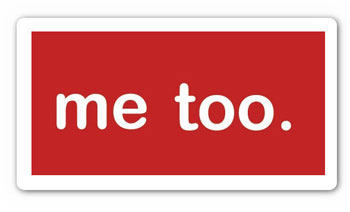My early school life started with underpaid teachers who were so cold about the subjects they taught that their passion was hardly infectious. Most of them were faking it, frustrated, depressed with life or were not even decently deep in their subjects.

By high-school, thanks to their combined effort, I had been convinced that there was something majorly wrong with the way I saw the world. Of course, I had my experiences with a few good teachers. Most of the other things that school taught me however, was just through some strange isolated incidents that changed me, rather than a long cultivated respect or admiration for any of the teachers or the school in particular.
One of my high school English teachers for example, was the first to give me amazing grades and break the stereotype that English essay writing in high school was all about how many stellar high profile words you could cram in that essay. That incident to an extent told me that essay writing can be fun, that I could be really good at it and that I could even just write for the fun of writing.
This however, was an isolated incident and if I sit down to look back at the amazing teachers who worked for my school and who have had a lot of influence on my life, I hardly find any. By the time I started college, I had pretty much come to the conclusion that those who seriously, cannot do, teach.
It was then that while continuing college I also landed up with my first job as... a part time system administrator and a part time computer science teacher. It was payback time! Like a rebel I set out to break all rules of teaching.
If someone felt like dropping a class or if he didn't understand something I was teaching, it was all my fault. I knew that back from my own days at school. But even these were just games a teenager plays. I was nowhere close to seriously dissecting and understanding what makes a really good teacher.
It was not until later parts of my career that I met a very different kind of mentors. These were people who were so passionate about their subjects that their passion would transmit over TCP/IP, come off the other end of your monitor and infect you.
These were kick-ass teachers. Not a bunch of underpaid non-doers, but the best in the industry, who were so successful they could not even give you their free time and so thoughtful, that they actually made it an effort to share their experiences with you.
These guys knew how to learn like a teacher and teach like student.
To a large extent, I had completely stopped believing in training programs by now. Anyone who was good at what he did, was online. Sharing his experiences. Teaching you stuff through his writing, podcasts and videos. Others, were just not worth wasting your time or your money on.
It was not until recently that I started taking up a couple of language classes that I started dissecting the difference between an amazing teacher and a mediocre one, who might even be an underpaid non-doer.
My French Lessons
The classes happened in a brightly lighted class room of a plush building, belonging to a very famous organization, which shall remain unnamed. On the very first day the person teaching us French had an issue with some of us not carrying a proper notebook and a pen to take notes. On the second day, we were told that just weekend classes were not enough and that we should study French at home as well.
On the third class, we had already pissed the teacher off by the lack of our involvement. But then, the feeling was mutual for some of us. The teacher, as it turns out, had pissed some of the students off by her slightly intimidating approach to teaching. Things were written on whiteboards. People copied them and then people tried to memorize French. She would read things out from grammar books and then people would take notes.
By the third lesson I had already found a lot of rather amazing French learning tutorials online which were way better than my French class and was having a ball with those. I was hooked to the idea of learning new languages and I was just using the classes as a means to check my progress and see where I was.
The ones who were actually expecting to learn something out of that classroom however, were utterly disappointed. By the fifth class, we had been reminded more than a dozen times that French was a very difficult language and that we must give in hard work to learn it. By the fifth class, a good thirty percent of the class had got intimidated and had either dropped out or just stopped coming.
With all due respect to the person who taught us French, she was a nice person and she was truly trying her level best to teach us French. She was amazing at French too. It's just the 'teaching' part where she was... well... just as mediocre as some of my school teachers.
My Sanskrit Lessons
For those of you who might not know what Sanskrit is, it is a ancient Indian language. Languages for me are a medium of expressing intent. I speak over four of them very fluently and somewhat understand a few more. For me every language has a use. If English is the language of communication, French is the language of romance, Sanskrit is the language for the intellect and the soul.
So when I was asked if I wanted to attend a one day session on Sanskrit I promptly answered 'yes' and attended it even though I had been able to grab just five hours or so of sleep that night.
I walked into the class without a notebook or a pen to write stuff on and then when the memories from my French class flashed back, I thought, since I was there I might as well show some respect to the teacher and go grab a notebook. So a colleague of mine and me went out and grabbed a notebook along with a pen.
There was something interesting about the teacher however. He started the class by asking us how many of us had never studied Sanskrit in our entire lives. I raised my hand promptly. Then he smiled and asked us which language he had asked us the question in.
Dumbstruck the folks who had lifted their hands looked at each other. The guy had asked us the question in Sanskrit. We had not just understood the question, but responded to it. This was a wearied mix of funny and creepy both rolled into one. We smiled in amusement.
Then there were some philosophical statements that were made, all in Sanskrit, with a little bit of English words inserted in every now and then, to give us the context and help us understand what he was talking about, but during most of the class, we felt like young kids learning how to walk, stumbling, falling, getting up, falling again. It was fun. Serious. Raw. Fun.
Notebooks. We were asked to not use them if possible, because chances were, you were going to lose your notebooks the moment you left the class. We were asked to just listen, sit back, enjoy and have fun.
In the one day boot camp, we were not just taught Sanskrit but that the secret behind any language is not to 'learn by translation'. It is to learn by LSRW which stood for Listen, Speak, Read and Write. You start by just listening to a language like a baby does. You do that for days. Then you slowly start understanding and speaking. The reading and writing are supposed to come in much later.
By the end of the day, two random students from the class got up and did a small situational play in Sanskrit. As we rolled over laughing at their mistakes, our minds were engaged in picking up on every single mistake each one of these guys made. Our minds, were learning. Unlike the French class, we were told over a dozen times in this class, that Sanskrit was easy and the general stereotype that it is really hard is just a myth.
Half way through the training a wearied realization dawned on me. I thought of my French classes we had stopped half way through and had never gone back to attend those. If our French teacher had used a teaching style that was similar to the one this guy was using, we would all be speaking fluent French by now.
The One Thing
If there is one thing I was told to pick as a difference between this Sanskrit teacher and the French teacher, it would be one little word that means the difference between your being a good teacher, your being a mediocre one or your being a lousy one.
Empathy.
No seriously. That is one quality a lot of my underpaid school teachers lacked as well. It's easy to put someone on the spot. Easy to ask him questions and feel frustrated when he is unable to answer questions. Teaching is not about any of that. Teaching is about connecting to other human beings, understanding their minds and giving them the best freaking environments where learning can be a fun and rewarding experience.
After all we are creatures who want to learn. The real question is, are you man enough to teach us? Do you feel strongly about your subject? Is your passion for your subject so strong that you can actually infect others with it? Can you simplify? Can you make it fun?
So, the next time you are planning on conducting a class or a small knowledge sharing session for your organization, here is a piece of advice: keep your frustrations at your home before you leave for the class and don't forget to load your bag with loads of patience. If your students feel bored, you are not entertaining enough. If you have to tell them to read up the subject at home, your passion for your subject is not infectious.
If they are not laughing and having fun, you are boring.Oh and yes, if you feel that your topic is very difficult and complicated, you might know your topic really well but you just might not be qualified enough to teach it yet.
Even if you forget everything else you read in this post, if you are ever going to teach people, whether it be professionally or for a small knowledge sharing session you are going to conduct in your organization, you cannot forget empathy. Now go, infect someone with your passion for a subject or a topic.
I dare you.







Comments are closed.